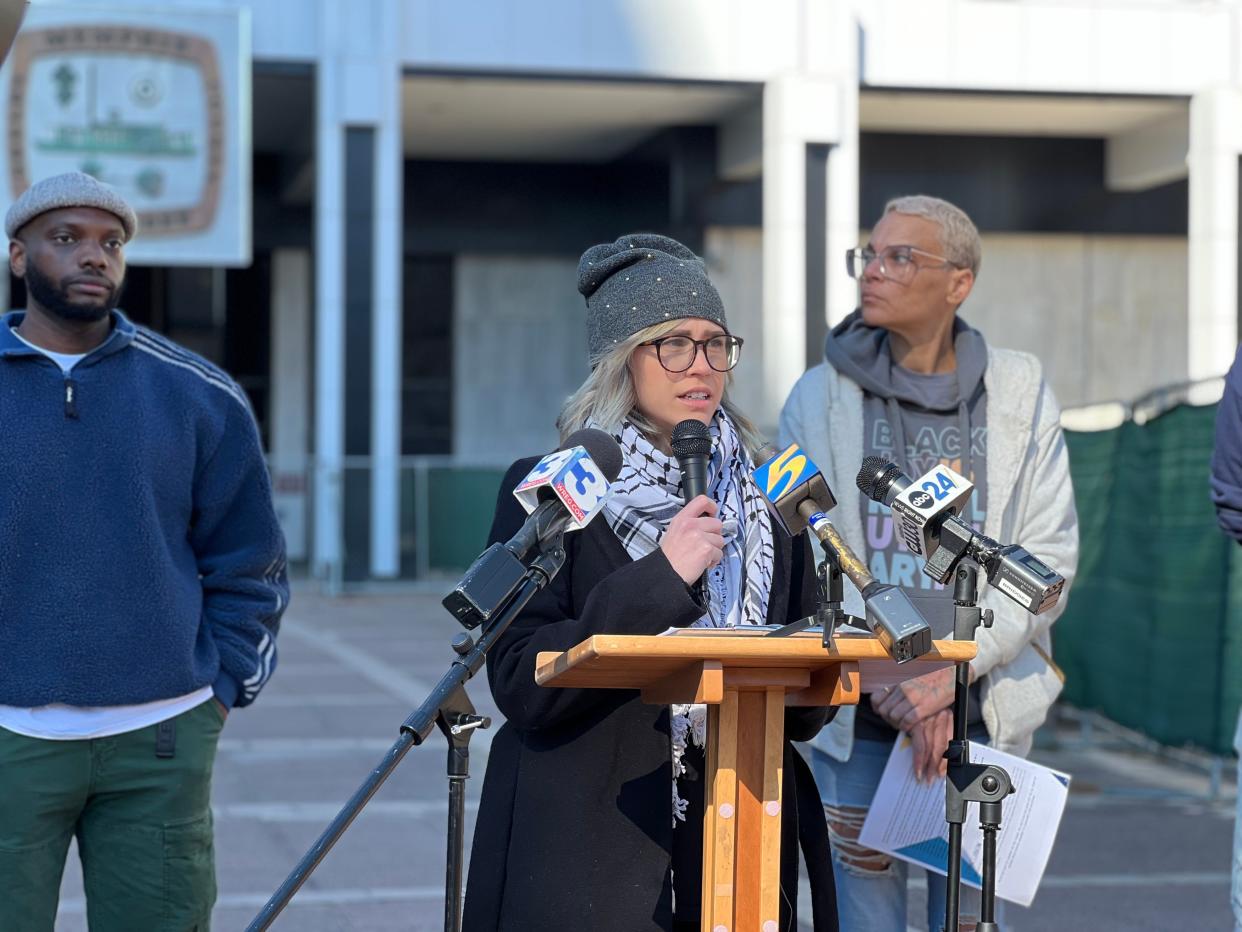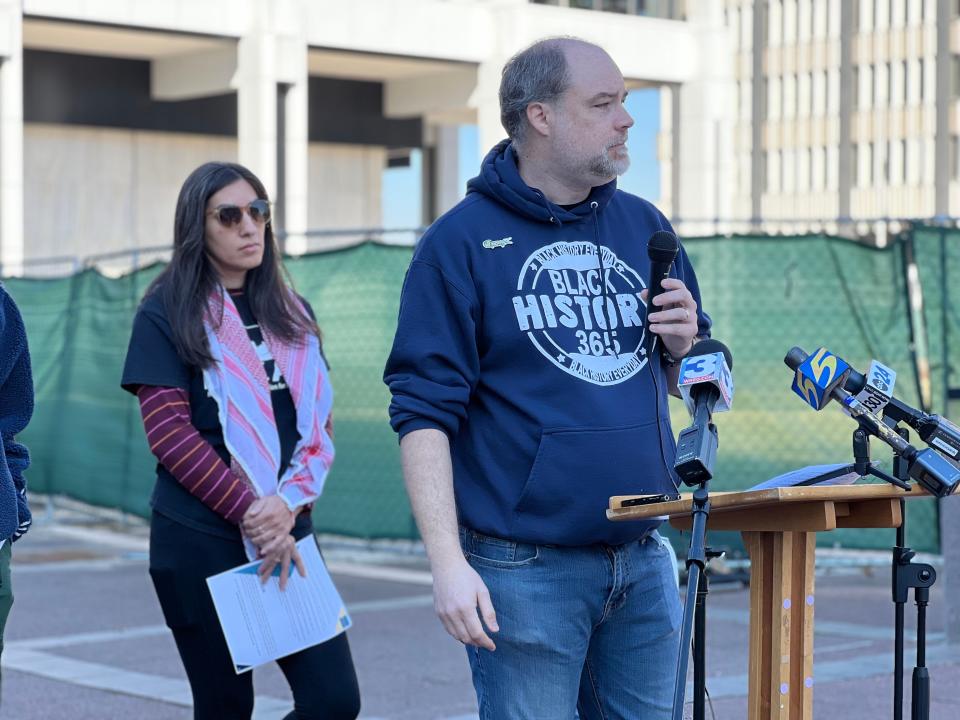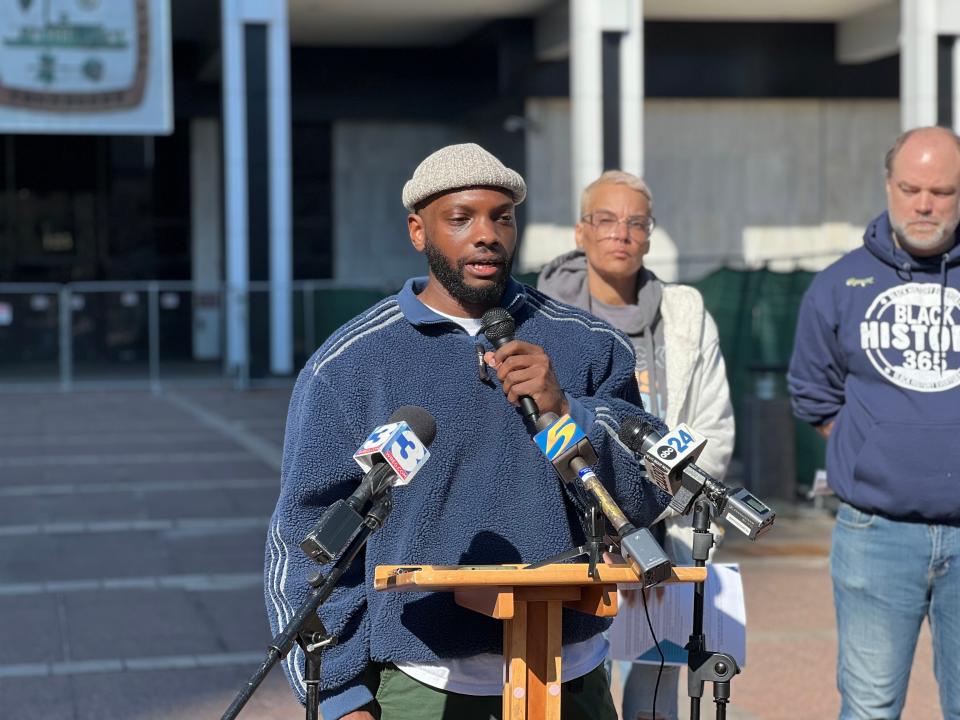Report: Few felony arrests come from traffic stops in Memphis despite increased citations

In the months after Tyre Nichols was pulled over and fatally beaten by officers with the Memphis Police Department, and an ordinance preventing police from stopping drivers for low-level traffic infractions was passed, the department pulled people over, and cited them, for those minor violations even more, a study released Monday found.
The study, Decarcerate Memphis' annual Driving While BIPOC (Black, Indigenous, other people of color) report, used information gathered from traffic citations issued by MPD and from Shelby County's court system to show who was being pulled over, why they were being pulled over and the outcomes of those stops.
"...Traffic stops are ineffective at reducing or preventing crime," said Alex Hensley, policy chair and steering committee member of Decarcerate Memphis, said at a Monday morning press conference. "No one should know this better than the bill's sponsor Sen. Brent Taylor, who worked alongside previous [Memphis] Mayor Jim Strickland to champion a surge of Tennessee Highway Patrol operations in Memphis. They championed these operations to make traffic stops in lieu of the pretextual stops that we banned."
Hensley pointed to Taylor, a Memphis Republican, "touting" the THP operations for making 11,626 stops.
More: State Sen. from Memphis files bill to prevent cities, counties from limiting police activity
"Only 13 out of 11,626 traffic stops resulted in felony arrests," Hensley said. "That is 0.1% of total traffic stops. Only three out of 11,626 traffic stops resulted in stolen vehicles recovered. That is 0.02% of total traffic stops. The vast majority of these stops resulted in warnings, at 68%. This is not effective, and he should know this. That is nothing to tout. That is embarrassing. And that is a waste of our taxpayer dollars at the least, and dangerous at worst."
The bills Hensley pointed to were filed earlier this year, and would prevent local governments from limiting the types of traffic stops police can engage in. In a press release announcing the bill, Taylor said traffic stops were an avenue to fight violent crime.
Decarcerate Memphis' report, however, found that few cases that begin with a traffic stop end up with people being charged with "serious crimes" in 2023. The report took a random sample of 1,432 cases from Shelby County's court system. Of those cases, 150 began with a pretextual traffic stop, the report said.

"Of those 150 cases, 91 (61%) brought no felony charges," the report read. "In 119 pretextual stop cases where the final outcome was known, ten ended in conviction, of which only two were felonies. One was for evading arrest for misdemeanor marijuana possession; the other was for intent to distribute 2.5 grams of meth."
The report also viewed a random sample of cases from 2021 and 2019, where 195 cases and 267 cases, respectively, were reviewed. Decarcerate Memphis said "zero felony convictions were associated with pretextual traffic stops" in those years.
The vast majority of the 2023 pretexts for stopping someone were for vehicle registration issues, and those pretexts were overwhelmingly against Black people.
The study also found that most traffic citations were for non-moving violations, like vehicle registration issues and not having insurance. Since 2020, the study said between 60% and 64% of all citations were for non-moving violations, which Decarcerate Memphis alleges have a "negligible safety benefit."
More: A look at Memphis police's camera integration system, & why MPD says it helps fight crime
"Traffic fatalities tend to decline as citations for moving violations (such as speeding or reckless driving) increase, but traffic fatalities seem unaffected by citations for non-moving violations," the report said.
These traffic fatalities have increased in recent years, according to the report, and for every 10% decrease in the number of moving violation enforcement, there is a 2% increase in traffic fatalities.
Black people in Memphis also make up the majority of people given traffic tickets, comprising about 74% of all tickets issued. They are also more likely to be given multiple citations on a single ticket. Of the tickets with multiple citations viewed by Decarcerate Memphis from 2017 through August 2023, 89.7% of tickets with multiple citations were given to Black people.

That number has grown 5% over the last five years, the report said.
The report also found that the majority of traffic citations to white drivers were for moving violations, with 33% of traffic citations given to white people being for non-moving violations. For Black drivers, the study found that they were mostly, 59%, cited for non-moving violations.
"Sen. Brent Taylor championed spending $29 million to have our city under occupation by the Tennessee Highway Patrol, to expand this country's use of pretext policing in Memphis and Shelby County," said Josh Adams, the base building chair for Decarcerate Memphis. "Though the operation failed to decrease crime, and failed to decrease roadway fatalities, the claim was that the program was for our public safety. This operation was called Operation Grizzly, and it was a grizzly failure and a grizzly waste of taxpayer dollars."
More: Memphis church hopes to reduce violence by turning guns into garden tools at gun surrender event
Data collected by Decarcerate Memphis also indicates that many of the traffic fines imposed go unpaid in part due to the high poverty rates in Memphis, continuing a cycle of ticketing.
Though pointing to problems, the report also recommends some solutions, such as reinvesting money from traffic stops into community organizations and programs. Another recommendation Decarcerate Memphis made was to shift focus away from non-moving traffic stops.
"Deprioritize non-moving violations," Adam Nelson, member of Decarcerate Memphis' steering committee, said. "At minimum, reduce their share of enforcement to pre-pandemic levels. Shift attention to dangerous driving behaviors. Shift traffic safety out of policing and make it the purview of a safety-focused institution such as a local department of transportation."
Lucas Finton is a criminal justice reporter with The Commercial Appeal. He can be reached at Lucas.Finton@commercialappeal.com, or (901)208-3922, and followed on X, formerly known as Twitter, @LucasFinton.
This article originally appeared on Memphis Commercial Appeal: Report: Memphis traffic stops rarely lead to felony arrests, convictions

